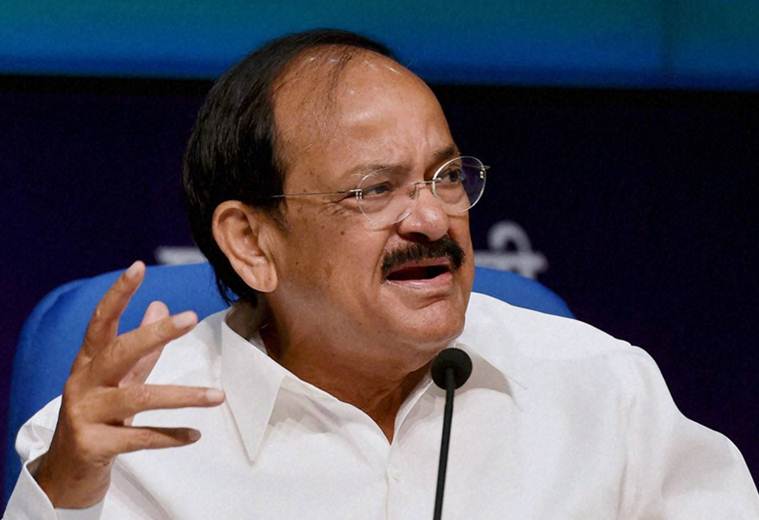New Delhi: In a detailed response to claims made by opposition parties that bills are being passed hurriedly and without Parliamentary scrutiny, Rajya Sabha Chairman M Venkaiah Naidu on Monday said that as the presiding officer he had referred 8 out of the 10 bills that were first introduced in the Upper House by the government to the concerned House panels.
“The other two bills that were not so referred related to inclusion of some more groups in the category of Scheduled Tribes as they did not warrant a detailed scrutiny by standing committee. Further, one more bill viz., The Motor Vehicles (Amendment) Bill as received from Lok Sabha after detailed scrutiny by the concerned Standing Committee and passage by the other House was again referred to the Select Committee of Rajya Sabha,” Naidu said.
“I hope that all of you would agree that such a record would not justify the allegation if it is so intended that Rajya Sabha is a party to hurried legislation,” he added.
Voicing concern over the government “hurriedly” passing the bills without Parliamentary scrutiny, seventeen opposition parties had in a letter to the Rajya Sabha Chairman last Friday said that it is a departure from the established practice and healthy traditions of enacting legislations.
Naidu said that during the current session, four bills have so far been introduced first in the Rajya Sabha. Of these, three bills have been taken up for consideration and passed. He said that these bills could not be referred to a Standing Committee because they are still to be constituted.
The Chairman noted that the contents of the letter sent by members of the opposition have been widely reported by print and electronic media thereby sending a message that Parliament is not making laws in the proper way that is expected of it.
“As Vice President of India and Chairman of Rajya Sabha and with considerable experience in public life and as a person concerned about the standing of parliamentary institutions in the eyes of the public, I thought it necessary to put the record straight so that whatever misconceptions created could be addressed,” Naidu told the members.
Clarifying the factual position, he said that the Presiding Officer of either of the Houses of Parliament wherein a bill is first introduced can refer the bill to the Standing Committee for scrutiny. If it is not done, the House of Parliament to which a bill is transmitted after passage by the other House, can collectively decide to refer such a bill to a Select Committee of that House, if the House so desires.
“It is important to note that it is for the House to decide on referring a bill to the Select Committee and not it’s Presiding Officer,” the Chairman said.
He, however, said that there is perhaps a need for codification of the guidelines that could make the road ahead much more clear as far as the scrutiny of bills is concerned.
Regarding the timing and duration of the sessions of Parliament, Naidu said that it is the prerogative of the government of the day and the Presiding Officers of the Houses of Parliament have no say in it.
“Governments schedule the sessions and extend the same based on the quantum of legislative business to be transacted. Keeping in view the concerns over declining number of sittings of Parliament over the years, it would be appropriate if Parliament can meet for longer periods than at present,” he said.
He strongly disagreed with the opposition members’ contention that their voice was being smothered by not allowing enough short-duration discussions.
“Given the implications and seriousness of this complaint, I have asked the secretariat to verify the facts regarding the convention of having one such discussion every week during the session,” he said.

